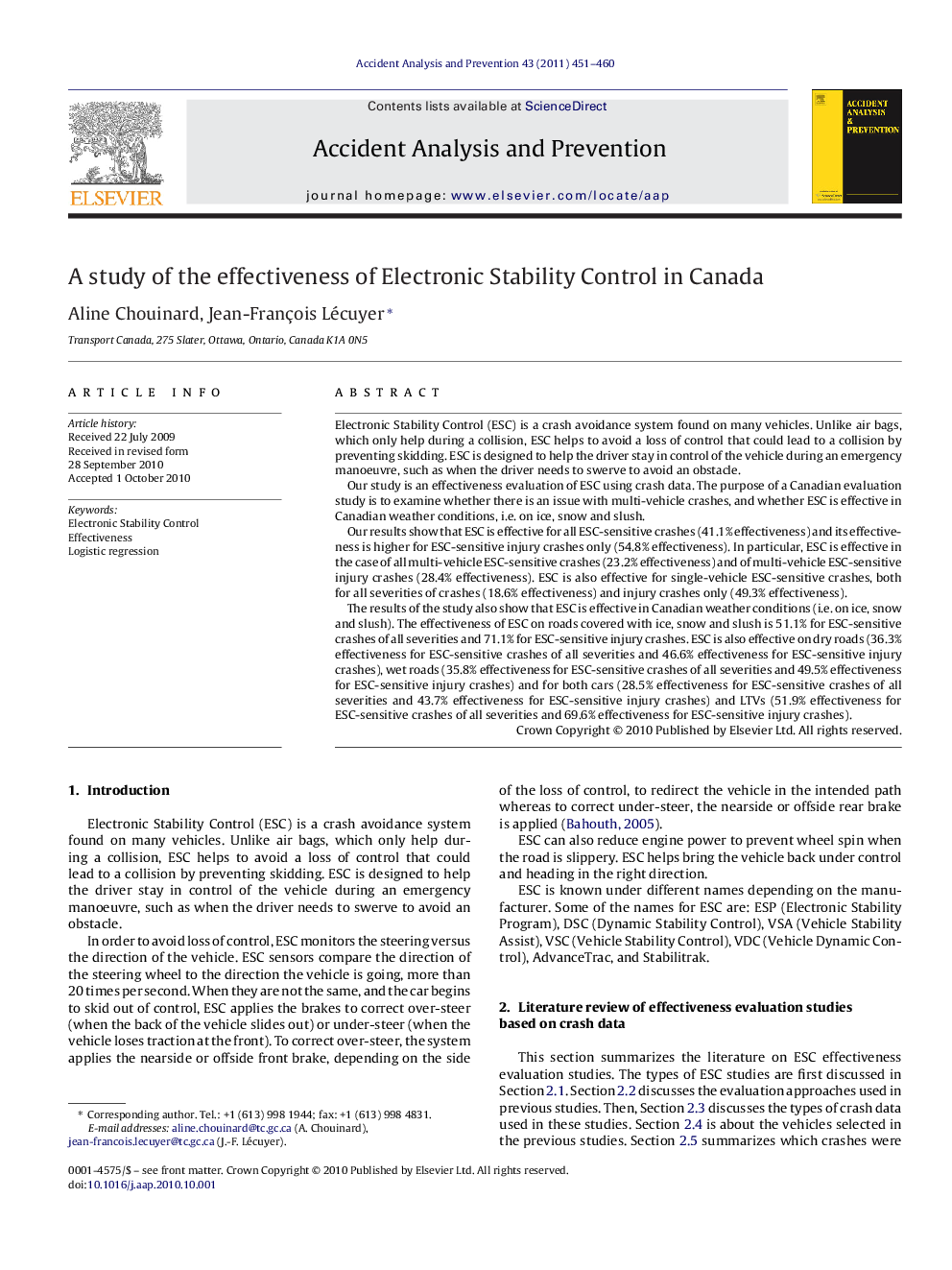| کد مقاله | کد نشریه | سال انتشار | مقاله انگلیسی | نسخه تمام متن |
|---|---|---|---|---|
| 572779 | 877377 | 2011 | 10 صفحه PDF | دانلود رایگان |

Electronic Stability Control (ESC) is a crash avoidance system found on many vehicles. Unlike air bags, which only help during a collision, ESC helps to avoid a loss of control that could lead to a collision by preventing skidding. ESC is designed to help the driver stay in control of the vehicle during an emergency manoeuvre, such as when the driver needs to swerve to avoid an obstacle.Our study is an effectiveness evaluation of ESC using crash data. The purpose of a Canadian evaluation study is to examine whether there is an issue with multi-vehicle crashes, and whether ESC is effective in Canadian weather conditions, i.e. on ice, snow and slush.Our results show that ESC is effective for all ESC-sensitive crashes (41.1% effectiveness) and its effectiveness is higher for ESC-sensitive injury crashes only (54.8% effectiveness). In particular, ESC is effective in the case of all multi-vehicle ESC-sensitive crashes (23.2% effectiveness) and of multi-vehicle ESC-sensitive injury crashes (28.4% effectiveness). ESC is also effective for single-vehicle ESC-sensitive crashes, both for all severities of crashes (18.6% effectiveness) and injury crashes only (49.3% effectiveness).The results of the study also show that ESC is effective in Canadian weather conditions (i.e. on ice, snow and slush). The effectiveness of ESC on roads covered with ice, snow and slush is 51.1% for ESC-sensitive crashes of all severities and 71.1% for ESC-sensitive injury crashes. ESC is also effective on dry roads (36.3% effectiveness for ESC-sensitive crashes of all severities and 46.6% effectiveness for ESC-sensitive injury crashes), wet roads (35.8% effectiveness for ESC-sensitive crashes of all severities and 49.5% effectiveness for ESC-sensitive injury crashes) and for both cars (28.5% effectiveness for ESC-sensitive crashes of all severities and 43.7% effectiveness for ESC-sensitive injury crashes) and LTVs (51.9% effectiveness for ESC-sensitive crashes of all severities and 69.6% effectiveness for ESC-sensitive injury crashes).
Research highlights▶ The effectiveness of ESC is 54.8% for ESC-sensitive injury crashes. ▶ The effectiveness of ESC is 28.4% for multi-vehicle ESC-sensitive injury crashes. ▶ The effectiveness of ESC for LTVs is 51.9% for ESC-sensitive injury crashes. ▶ ESC is 71.1% effective on ice, snow or slush for ESC-sensitive injury crashes.
Journal: Accident Analysis & Prevention - Volume 43, Issue 1, January 2011, Pages 451–460